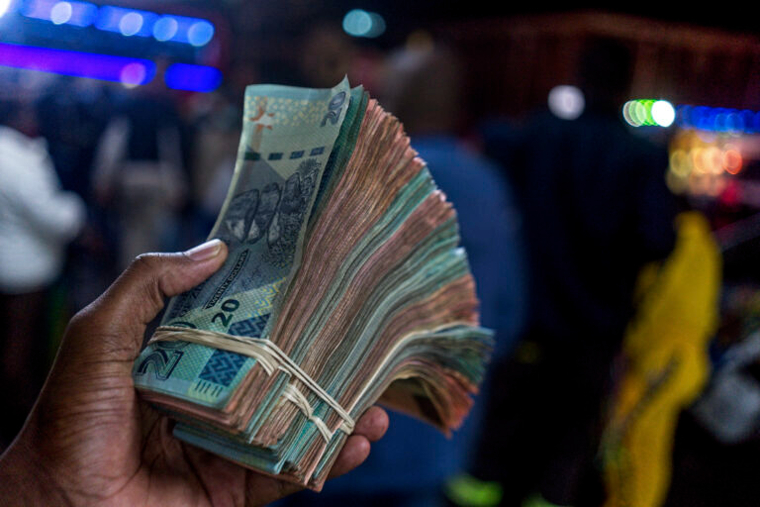 Zimbabwe plans to keep its local currency as legal tender, even as the US dollar is now the unit of choice for most transactions in the economy.
Zimbabwe plans to keep its local currency as legal tender, even as the US dollar is now the unit of choice for most transactions in the economy.
The extensive use of US dollars doesn’t concern authorities, who instead see it as a way to access foreign currency, according to Mthuli Ncube, the southern African nation’s Finance Minister.
The country is ineligible to access lines of credit from multilateral financial institutions because it owes more US$14 billion.
“Zimbabwe is very clear, the currency for transaction is the Zimbabwe dollar and US dollar and we are very comfortable with that,” Ncube said in an interview with Bloomberg TV in London yesterday. “For now the Zimbabwe dollar exists.”
Still, the highest denomination of the local unit is $100 — equivalent to about 10 US cents — highlighting the pressure the Zimbabwean currency is under. It has lost more than 40% of its value on the official market this year.
It trades officially at $1 000 per dollar and between $1 400 to Z$1 800 on the parallel market, according to ZimPriceCheck.com, a website which tracks both official and unofficial rates.
The Zimbabwe dollar was reintroduced as legal tender in June 2019 after being scrapped a decade before when hyperinflation made it worthless.
It has struggled to find widespread acceptance among citizens, with inflation that peaked at 837% in 2020 helping erode value.
At least 77% of transactions are done in the American currency, according to the statistics agency.
The Zimbabwe dollar’s return four years ago made domestic manufacturers more competitive, with locally produced products at 80% in most retail outlets, according to Ncube.
“It has done a great job,” he said. “We are very comfortable with both currencies.”
Other highlights from the interview:
- Zimbabwe expects an International Monetary Fund staff-monitored program starting in October or November, running for nine months.
- The country hopes to secure a sponsor for its debt-clearance plan by the end of 2024. It’s targeting clearing arrears with multilaterals in the first quarter of 2025.
- Zimbabwe wants more local processing of key minerals, including lithium that’s seen as a mineral of the future. It’s important that we “must maximise value” for Zimbabweans and Africa, Ncube said. – Bloomberg
(104 VIEWS)

